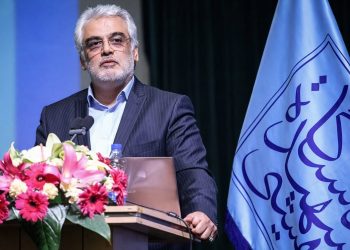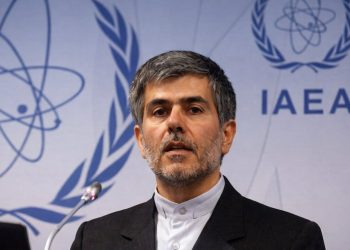Introduction
The right to development is a comprehensive and fundamental right for all human beings, which includes having a decent living standards, access to education and health, participation in political and economic decisions, and benefiting from equal opportunities for progress. The Islamic Republic of Iran, as a member of the international community, is committed to respecting and supporting this right for all its citizens. However, the imposition of unilateral and oppressive sanctions by the United States of America against Iran has created a great obstacle in the way of realizing this fundamental right.
The Declaration on the Right to Development, adopted by the United Nations General Assembly in 1986, as a fundamental document in the field of human rights, recognizes the right to development as a human right. This right includes having decent living standards, access to education and health, participation in political and economic decision-making, and benefiting from equal opportunities for advancement. In this note, we try to first address the position of international law in this regard and then its impact on other sectors.
Contradiction of sanctions with the provisions of the declaration on the right to development [1]
Article 1 of the Declaration on the Right to Development recognizes the right of every human being to “enjoy an adequate standard of living”. This includes access to food, water, housing, clothing, and other necessities of life. US sanctions, by limiting Iran’s access to financial resources and commercial exchanges, directly violate this right. Article 2 of the declaration recognizes the right of every human being to “access to education and health”. Sanctions, by limiting Iran’s access to medical equipment and medicine, violate this right. Article 3 of the declaration further recognizes the right to “participate freely in political, economic, social and cultural decision-making”. Sanctions, by isolating Iran in the international arena, violate this right. Finally, Article 4 of the declaration recognizes the right to “enjoy equal development opportunities”. Sanctions violate this right by limiting employment and educational opportunities for Iranians, especially young people.
Sanctions and obstacles to development
US sanctions against Iran, which began in the 1970s and have intensified over the years, have targeted a wide range of economic sectors, including trade, oil, banking, and transportation. These sanctions, directly and indirectly, have hurt the lives of the Iranian people and prevented them from achieving their fundamental rights, including the right to development. We examine the US sanctions with each of these two categories.
Legitimate sanctions are measures that are applied within the framework of international law and with the authorization of the United Nations Security Council. These sanctions are considered a tool to punish governments for violating their international obligations or to force them to make peace and settle disputes peacefully. Illegal sanctions are measures that are applied outside the framework of international law and without the authorization of the United Nations Security Council. These sanctions are often used as a tool to exert political or economic pressure on countries to achieve specific political or economic goals. Unilateral US sanctions against Iran lack legitimacy in the opinion of many international law experts are not legal and fall into the category of illegal sanctions. The main reasons for this are:
Lack of authorization of the Security Council: These sanctions have been applied without the authorization of the United Nations Security Council, and for this reason, they are contrary to the principle of respect for the sovereignty of governments and non-interference in their internal affairs. The only sanctions under Chapter Seven of the United Nations Charter are legitimate, and any other sanctions are illegitimate in international law.
Comprehensive and extra-territorial impact: These sanctions have targeted not only the Iranian government but also the people of this country and have generally hurt their lives and livelihoods. This is contrary to the basic principles of humanitarian rights. A very important point in the discussion of US sanctions is its extraterritorial effect. For example, the claim may be made that America has only sanctioned Iran and other countries have the possibility of trading with Iran. Meanwhile, if a country has trade relations with Iran, it is also disturbed and they are also forced to leave trade relations with Iran.
Illegal and discriminatory goals: Some of the goals of these sanctions, such as changing Iran’s political system, are contrary to the principles of international law and the United Nations Charter. These sanctions have been specifically imposed on Iran, and other countries that have committed similar actions have not been subject to such sanctions. This is contrary to the principle of equality of governments before the law.
Economic effects of sanctions
Sanctions have severely weakened Iran’s economy and led to an increase in inflation, unemployment, and poverty. This has significantly reduced the Iranian government’s ability to provide basic services to its citizens, such as education and health. In addition, sanctions have limited Iran’s access to international financial resources, which has hindered investment. It has made it difficult to develop projects. Sanctions have severely limited Iran’s access to international financial systems. This has made financial transactions difficult and costly for Iranian people and businessmen. So for a simple business, you have to spend at least three times, which will show itself in the domestic market and the economy and will reduce productivity and decrease the value of the national currency. One of the most important effects of this is the decrease in foreign investment due to economic instability in recent years. Sanctions have caused foreign investment in Iran to decrease significantly. This has hindered Iran’s economic growth and development. The requirement for economic growth is economic stability, which due to its high cost in foreign interactions and relations has made this important not to be achieved.
Another effect that can be expressed here is international trade. According to statistics, Iran’s foreign trade has decreased by 33% from 2012 to 2014 (Shirazi, 2016: 118) and although this trend has been established, considering other economic components as one of the growth criteria Economic, has caused economic decline in recent years. On the other hand, due to political-security issues, despite the possibility of trade with distant countries, due to the high commercial risk, these types of exchanges have been greatly reduced. Its connection with political and security issues is to the extent that every time new sanctions are imposed, it shows itself in the statistics, and until the country recovers its status despite the sanctions, the sanctions reproduce themselves in different ways.
The economic effects of the embargo are not limited to investment or international trade. One of the most important economic effects in Middle East countries is the sale of oil. In a way, the rate of economic growth and the power of governments in advancing economic goals is the amount of their oil sales and the way they collect their financial claims. For example, in 2018, with Trump’s withdrawal from the JCPOA, we saw a 47.5% decrease in oil sales, and this is a 47.5% decrease in national income, which naturally affects economic development. (Avaride, 2023: 348)
Maybe the components that were mentioned in the above parts are not easy to understand and communicate to the general public. The economic component that causes the general public to get involved with it as a result of the embargo and specifically touches it is the devaluation of the national currency. All people have seen the decline in the value of the national currency and the ratio between the real and the dollar and have understood its effect on life. If we want to consider the depreciation of the currency from 2018, when the JCPOA was withdrawn, we will realize that we have experienced a 303.68% devaluation of the national currency in just four years. This is while we experienced a 100 percent reduction in just one year, i.e. 2021 to 2022, and if we want to calculate its reduction in 2023, the reduction percentage will increase significantly[2].
Social effects of sanctions
Sanctions have also had significant negative consequences on Iran’s social situation. For example, the sanctions have led to an increase in inequality, especially between the rich and the poor. Also, the sanctions have caused many Iranians, especially the youth, to lose their job and educational opportunities. This has led to frustration and social dissatisfaction.
One of the most important social effects that can be discussed in this field is unemployment. Unemployment is a multidimensional social phenomenon. Due to the clarity of its economic dimensions, we will discuss its social dimensions. The unemployment rate is always in a direct relationship with poverty. That is, the more unemployment increases, the more poverty increases. But the effect of sanctions is not only on unemployment. We must pay attention to the fact that inflation not only increases unemployment but also brings those whose income is low to the circle of poverty. Therefore, we see that in 1998, even though the unemployment rate had not changed, we experienced a 38% growth in poverty. (Avaride, 2023: 346)
Even though in our years we have seen a decrease in poverty in international statistics, for example, from 2021 to 2022 we have seen a 2.9 percent decrease in poverty[3], it should also be noted that it should also be noted that there is no correct statistical population to compare and analyze statistical data due to lack of transparency. Apart from that, what can be seen with the decrease in the value of money is that the class gap is increasing every day, and this reduction has caused many of those who owned real estate to be above the poverty line, while not being able to buy what they currently have.
Our poverty is the result of sanctions. American sanctions against Iran not only violate the right to development of the Iranian people due to this poverty but also contradict the country’s commitments to international covenants, including the International Covenant on Economic, Social, and Cultural Rights. Considering the juxtaposition of economy, society, and culture in a covenant, it is proof of the thematic connection of these three important things, that neglecting one of them leads to the violation of the other.
Human Rights Violations
In addition to violating the provisions of the declaration on the right to development, US sanctions against Iran also violate the fundamental principles of human rights, such as the right to life, the right to health, and the right to freedom. For example, these sanctions have limited access to medicine and medical equipment, and this has endangered the lives of many Iranian people. In addition, sanctions have prevented many Iranians, including students and researchers, from traveling and participating in international activities.
Conclusion
Unilateral US sanctions against Iran are against the principles of international law and the United Nations Charter. These sanctions not only harm the people of Iran but also harm peace and stability in the region. Unilateral US sanctions against Iran have had extensive negative consequences for the economic rights of the people of this country. These sanctions have not only hindered Iran’s economic progress and development but have also caused extensive violations of the economic rights of the people of this country. It is necessary to cancel these sanctions and respect the economic rights of the Iranian people. The international community should not remain silent in the face of this cruelty and should strive to achieve the rights of the Iranian people. We must make a distinction between being a member of the community of nations and being effective in it.
Sources[4]
Avaride, Malik, Bagheri Dolatabadi, Ali, Hosseini, Seyed Aqeel, & Dehbanipour, Reza. (2023). Comparison of the impact of US sanctions against Iran and Venezuela during the presidency of Donald Trump and its economic effects. International political economy studies, Volume 6, Number 1, pp. 321-353. (Persian)
Iqbali, Maitham and Khalilzadeh, Mona, 2015, international sanctions as an economic tool to implement foreign policy, https://civilica.com/doc/628636. (Persian)
Shirazi, H., Azarbaiejani, K. & Sameti, M. (2016), The Effect of Economic Sanctions on Iran’s Export. Iran. Econ. Rev. 20 (1), 111-124
United Nations (2024), The Right to Development in International Development Cooperation, available at: https://www.ohchr.org/en/ohchr_homepage
United Nations (2024), Declaration on the Right to Development, available at: https://www.ohchr.org/en/ohchr_homepage
Zahrani, Mustafa (2008), “Theoretical foundations of economic sanctions against the Islamic Republic of Iran: Obstacles and challenges of Iran’s oil”, Volume 2, pp: 23-4. (Persian)
Zamani, Seyyed Ghasem (2011), “Unilateral coercive measures of the United States against Iran from the perspective of international law with an emphasis on the procedure of the United Nations Human Rights Council”, Vol. 48, pp. 8-35. (Persian)
[1] UN declaration on the right to development 1986
[2] https://www.focus-economics.com/country-indicator/iran/exchange-rate/#:~:text=The%20exchange%20rate%20ended%202022,24%2C799%20per%20USD%20in%20Iran.
[3] https://www.macrotrends.net/global-metrics/countries/IRN/iran/poverty-rate#:~:text=Iran%20poverty%20rate%20for%202022,a%204.7%25%20increase%20from%202018.
[4]. Some sources are directly referenced and others are merely the inspiration for the current note.





